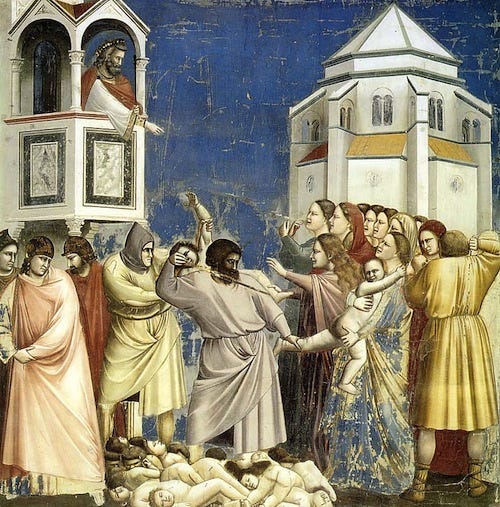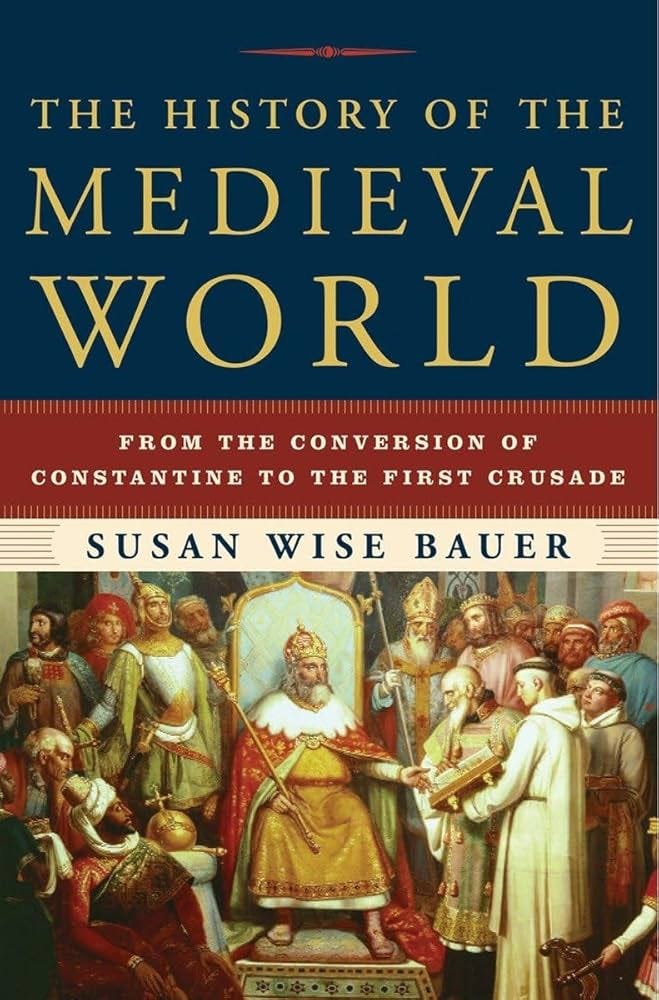I think exploring Advent and the Christmas season through the eyes of G.K. Chesterton (and Ryan Whitaker Smith) in Winter Fire: Christmas With G.K. Chesterton has been a lot of fun.
So far I’ve been tickled with each small exploration of an aspect of the Christmas season that I’ve not considered before–like the significance of playing games, the importance of gathering as a family, and just plain reveling in how child-like and marvelous all of Christmas is to me–even if Santa Claus, Christmas trees, and all of that stuff is steeped in paganism.
Celebrating Christmas is FUN. 🙂
So of course both Chesterton and Whitaker Smith threw my party bus into a screeching lurching slide with their examination of the ramifications of Jesus’ birth: the consequences of His birth that don’t have much to do with gift-giving, wassailing about with eggnog and Christmas carols.
The events of Matthew 2–King Herrod’s response to Jesus’ birth–the slaughtering of all the babies as referenced in Matthew 2:16-23, particularly verse 18 which is a quotation of Jeremiah 31:15 which spoke of the slaughter of innocent children when the Babylonians conquered Judah some 800 years before Christ’s birth:
Matthew 2:18 “A voice was heard in Ramah, Weeping and great mourning, Rachel weeping for her children; And she refused to be comforted, Because they were no more.”
I would think King Herrod’s butchery (and the Babylonians savagery, hundreds of years before) was just Biblical exaggeration for effect if I wasn’t also reading Susan Wise Bauer’s The History of the Medieval World: From the Conversion of Constantine to the First Crusade–a book so soaked in blood, I almost have to wash my hands every time I pick it up,.
This history of the medieval world from approximately Christ’s birth to the middle of the 12th century is just page after page of slaughter–in Europe, Africa, and Asia (and Bauer in her scholarly completeness, goes into a little bit of the heinous slaughter in the new Americas too)–with every single minor king and potentate bent on the slaughter of those who opposed them.
So King Herrod is just another example of wiping out opposition in the simplest–and goriest way–imaginable.
Glenn Stanton describes the Christmas scene back then in Herrod and Sandy Hook:
“When Christ, the God-child was still a toddler one man was hell-bent on slaughtering hundreds, if not thousands, of precious, deeply-loved toddlers and infants. His name was Herod, seeking annihilation of a new born King out of sheer jealousy. To make sure this particular child was eliminated, Herod commanded that every baby boy two years of age and younger be slaughtered in the town of Bethlehem and the surrounding communities. It was done suddenly, without warning to either parent or child, with unbridled viciousness and violence.”
G.K. Chesterton notes Herrod’s violence after Jesus’ birth in The Everlasting Man:
“The demons, in that first festival of Christmas, feasted also in their own fashion.”
King Herrod was afraid the coming of Jesus Christ would take away his throne–but the birth of Jesus (which we all celebrate now with gift giving, mulled wine, and the Charlie Brown Christmas Special), is about Jesus coming to be king of Herrod’s eternal life–not his present one.
I think that’s true today too.
We are all King Herrod in a sense.
I think we are afraid Jesus wants to take something from us, when in reality, He wants to give us the precious gift of peace, freedom, and joy.
Whitaker Smith reminds:
“Chesterton reminds us that evil lurks in the background of our familiar nativity scenes; that just beyond the spill of holy light, an enemy who has “rotted the legends with lust, and frozen the theories into atheism.”
He continues:
“It is not just that Christ came into the world to offer salvation, to atone for our sins, to welcome us into the family of God; He came to vanquish evil, scatter darkness, defeat death…It serves as a sobering reminder that Christ was born into a violent, godless world–a world in which kings clung to power with clenched fist, in which the weak and vulnerable were trampled, in which wickedness held sway over the earth. At a surface glance, not much has changed since then.”
No. I’d say that pretty much nothing has changed.
President Trump had to survive at least two assassination attempts to be elected president in the most modern country the earth has ever seen.
King Herrod would certainly approve of this method of political control.
The CEO of UnitedHealthcare (which I had insurance through at various times of my career) just got whacked in midtown Manhattan by an assassin–and King Herrod smiles.
Slaughter is so much easier, as a solution to problems, right?
Let’s see–43,000 Ukrainian soldiers and about 180,000 Russian soldiers have been killed in their conflict.
Merry Christmas if you like it bloody.
C.S. Lewis wrote in Mere Christianity:
“Christianity is the story of how the rightful king has landed, you might say landed in disguise, and is calling us all to take part in a great campaign of sabotage.”
Dietrich Bonhoeffer was that kind of saboteur. So were all of Jesus’ disciples.
Slaughter and savagery are the world’s default condition and most of us can’t do a darn thing about it–but wail like Rachel in Matthew 2:18.
But we can do our small, tiny part with all the people we can reach out and touch in our simple, Christ-loving days.
Like Sinatra sings:
Someday soon, we all will be together
If the fates allow
Until then, we'll have to muddle through somehow
So have yourself a merry little Christmas now
Lord, our hearts are heavy when we think of the pain and loss this verse recounts. It reminds us of the brokenness of this world, where evil and suffering still bring grief and despair.
Lord, we turn to You, knowing You are the God of all comfort and peace, near to the brokenhearted and to those crushed in spirit. Help us to comfort those who are mourning, to those who have suffered the loss of a loved one or the weight of tragedy.
Amen.





